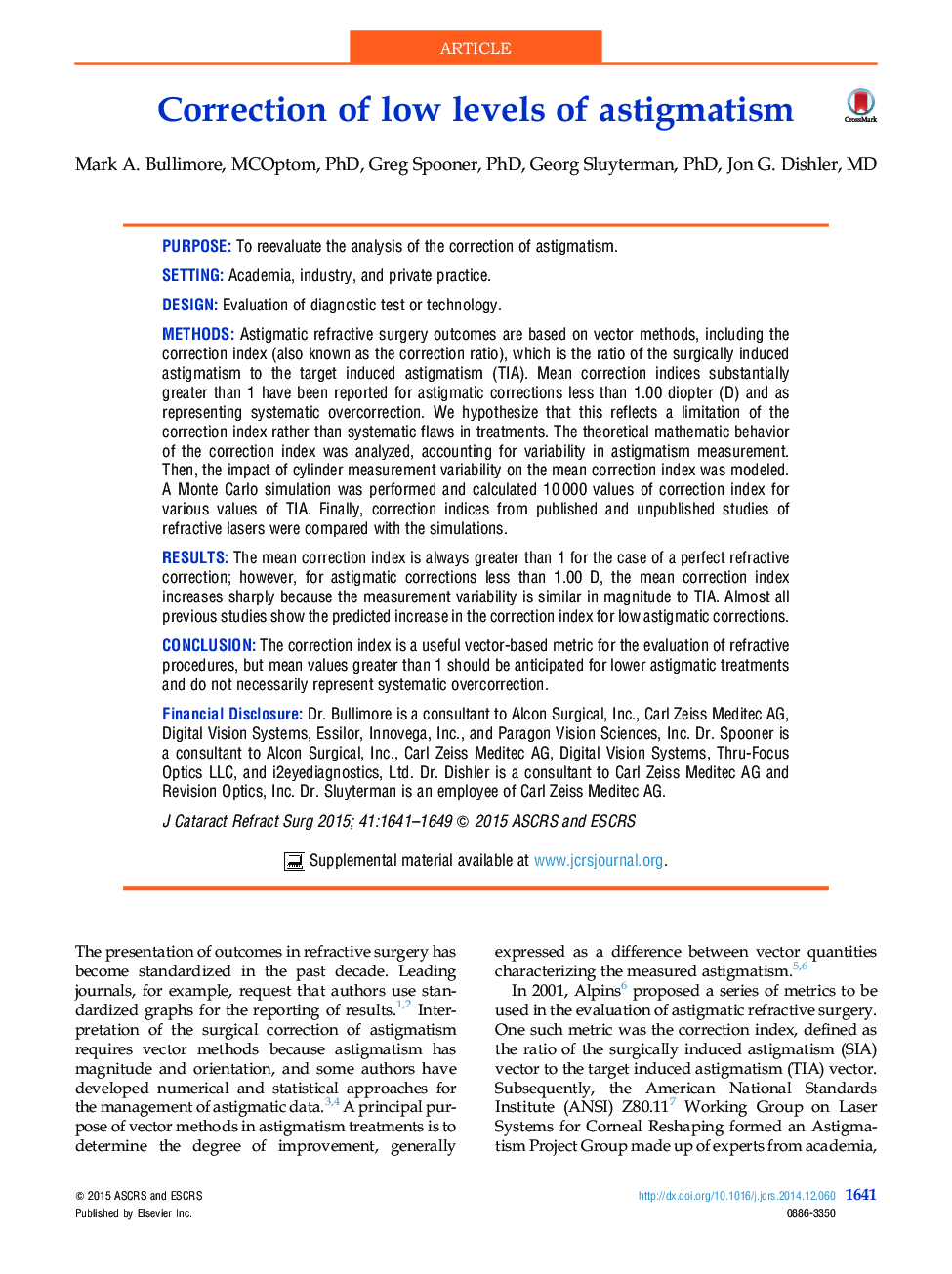| Article ID | Journal | Published Year | Pages | File Type |
|---|---|---|---|---|
| 4016437 | Journal of Cataract & Refractive Surgery | 2015 | 9 Pages |
PurposeTo reevaluate the analysis of the correction of astigmatism.SettingAcademia, industry, and private practice.DesignEvaluation of diagnostic test or technology.MethodsAstigmatic refractive surgery outcomes are based on vector methods, including the correction index (also known as the correction ratio), which is the ratio of the surgically induced astigmatism to the target induced astigmatism (TIA). Mean correction indices substantially greater than 1 have been reported for astigmatic corrections less than 1.00 diopter (D) and as representing systematic overcorrection. We hypothesize that this reflects a limitation of the correction index rather than systematic flaws in treatments. The theoretical mathematic behavior of the correction index was analyzed, accounting for variability in astigmatism measurement. Then, the impact of cylinder measurement variability on the mean correction index was modeled. A Monte Carlo simulation was performed and calculated 10 000 values of correction index for various values of TIA. Finally, correction indices from published and unpublished studies of refractive lasers were compared with the simulations.ResultsThe mean correction index is always greater than 1 for the case of a perfect refractive correction; however, for astigmatic corrections less than 1.00 D, the mean correction index increases sharply because the measurement variability is similar in magnitude to TIA. Almost all previous studies show the predicted increase in the correction index for low astigmatic corrections.ConclusionThe correction index is a useful vector-based metric for the evaluation of refractive procedures, but mean values greater than 1 should be anticipated for lower astigmatic treatments and do not necessarily represent systematic overcorrection.Financial DisclosureDr. Bullimore is a consultant to Alcon Surgical, Inc., Carl Zeiss Meditec AG, Digital Vision Systems, Essilor, Innovega, Inc., and Paragon Vision Sciences, Inc. Dr. Spooner is a consultant to Alcon Surgical, Inc., Carl Zeiss Meditec AG, Digital Vision Systems, Thru-Focus Optics LLC, and i2eyediagnostics, Ltd. Dr. Dishler is a consultant to Carl Zeiss Meditec AG and Revision Optics, Inc. Dr. Sluyterman is an employee of Carl Zeiss Meditec AG.
